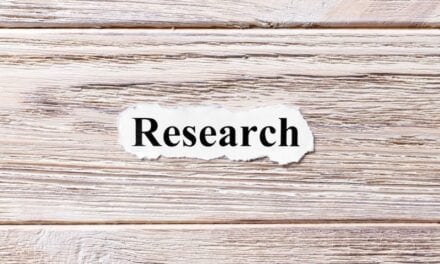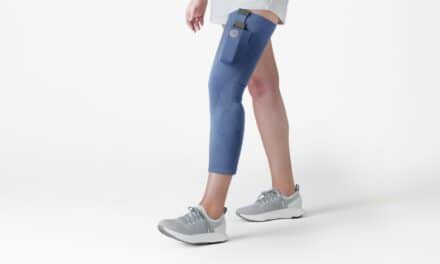A major topic at the upcoming virtual.MEDICA trade fair (November 16 – 19, 2020) will be digital health, which experienced a large boost due to the COVID-19 pandemic.
MEDICA is a world-leading platform for the medical technology and healthcare sector. Usually held every November at the fairgrounds in Düsseldorf, Germany, the event will be staged in a virtual format this year.
Remote health applications, big-data analyses and artificial intelligence (AI) in the medical sector will be a particular focus of the virtual.MEDICA program – such as in the English-language sessions at the MEDICA CONNECTED HEALTHCARE FORUM and the MEDICA HEALTH IT FORUM (online “Conference Area”).
The MEDICA CONNECTED HEALTHCARE FORUM will start on November 16 with the finale of the 12th Healthcare Innovation World Cup. The top 12 start-ups for the “Internet of Medical Things will be presented here starting at 2:00 pm Central European time. Among them will be “PKvitality” from France who developed a watch that enables users to discreetly monitor their blood sugar levels. A trend display and graphics help to improve blood glucose control. The monitoring sensor for chronic diseases from the German company Mindpax is also worn on the wrist. The activity sensor is part of a light, waterproof wristband.
The data is transmitted via Bluetooth to the app “Mindpax.me.” From the mobile application the data is sent via internet to a secure database for activity and sleep classification. This personalized platform combines monitoring of biomedical data with self-reporting and supports people with severe mental illnesses such as bipolar disorder or schizophrenia.
The MEDICA CONNECTED HEALTHCARE FORUM will offer another exciting format with the 9th MEDICA Start-up COMPETITION (November 17 at 2:00 pm Central European time) and healthcare innovations in health apps, diagnostics, robotics and AI from the start-up scene. Among the numerous remarkable COMPETITION applications in the Health Apps segment will be Mediquo from Spain with a professional tool for communication between doctors and patients and GenuSport with a playful knee rehabilitation. In the field of diagnostics, Higo from Poland will offer tools that can be used to examine children and send the data to the doctor for diagnosis.
Artificial intelligence is being used by Evercot AI from Germany, in order to capture brain changes, strokes, Alzheimer’s disease, glioma and Parkinson’s disease remotely. H Robotics from Korea has developed a device in the robotics segment that can be used for wrist, elbow, ankle and knee exercises for rehabilitation at home.
COVID-19 – Redefining Connected Health
Prof Dirk Brockmann of the Humboldt-Universität in Berlin will talk in the “COVID19 – Redefining Connected Health” session on November 18 at 2:00 pm Cenral European time within the Conference Area at virtual.MEDICA. He initiated the Corona data sharing app of the Robert Koch Institute, which is also being discussed in the virtual sessions of the MEDICA MEDICINE + SPORTS CONFERENCE 2020.
The Data Donation App collects data from wearables such as fitness bands on a voluntary basis and is intended to help the Robert Koch Institute to assess the spread of infections. This allows scientists to better assess the current epidemiological situation and use it as an early warning system. In the same session on November 18, solutions for measuring temperature will be presented by Dr. Holger Hendrichs from greenTEG. Core body temperature is an important vital parameter in determining a person’s state of health. greenTEG offers a unique body core temperature sensor for continuous and non-invasive measurements. This sensor can be used for monitoring purposes (integrated into a wearable) – for people in need of care or, if necessary, with regard to COVID-19 as a kind of “early warning system” for company employees
By means of clinically validated wearables, a large number of cardio-respiratory signals can be recorded, including respiratory volume and frequency, blood oxygen saturation, heart rate, lung sounds and core body temperature. These wearables can thus help physicians to remotely monitor and diagnose patients, whether they are suffering from sleep apnea, pulmonary hypertension or severe acute respiratory syndrome. Novosound’s Dave Hughes will talk about a solution using portable ultrasound sensors for use in lung diagnosis and healing management.
Digital Applications for All
The MEDICA CONNECTED HEALTHCARE FORUM will continue with start-ups and their innovations on the final day (November 19). Under the MEDICA DISRUPT label, numerous development teams will then present their innovations. Laszlo Bax from Braingaze will explain in a session (starting at 3:40 pm Central European time) how digital biomarkers enable the early detection of cognitive disorders. Dr. Roland Amba Assamvon from Evercot AI will explain the extent to which AI can be used for early detection of brain diseases.
Digital health applications (DiGA) open up a wide range of options in terms of prevention, diagnosis and therapy – not only with benefits for treating physicians, but also as “digital helpers” in the hands of patients. The German Federal Institute for Drugs and Medical Devices (BfArM) is also backing digital healthcare applications. With the Digital Healthcare Act (DVG) and the Digital Health Applications Ordinance (DiGAV), the legislator has created the basis for making apps available quickly to 73 million members of statutory health insurance companies – a project that also raises hopes among many start-ups. BfArM President Prof. Karl Broich will give an overview of the current status and approval of medical applications and their future on November 18 at 4:00 pm Central European time. A German directory of health apps is already available in the ‘DiGA App Store’. As co-founder of this directory, Dr. Benedikt Zacher will explain the importance of this special App Store.
Start-ups and Their Sponsors
As one of the first digital healthcare investors, Flying Health states that it invested in digital healthcare as early as 2012 and brought the first prescription app onto the market in 2014. Currently, Flying Health participates in the “heal capital” venture capital fund with which the German Association of Private Health Insurers (PKV – Verband der Privaten Krankenversicherungen) promotes start-ups and their digital healthcare innovations. Lina Behrens, Managing Director of Flying Health, will chair the “From treatment to prevention” session on November 16 at 10:00 am Central European time at the MEDICA HEALTH IT FORUM.
One of the supported start-ups is HelloBetter, who develop and market online training courses that promote mental well-being. The portfolio includes online offers for the treatment of stress, depression and anxiety disorders and additional special programs for patients where these symptoms occur in connection with a chronic disease such as diabetes, as well as preventive training – also during the COVID-19 crisis. A special HelloBetter training program is designed to support users in strengthening their own mental health. Dr. Hanne Horvath, a Co-Founder of HelloBetter, Dennis Hermann from Kaia Health and Benjamin Westerhoff of the Barmer health insurance group will take part in this session at the MEDICA HEALTH IT FORUM.
Fighting the Virus with Data Donations
To be “fasterthancorona.org” is the goal of the website Dr. med. Tobias Gantner founded and operates with a pan-European team. The founder and managing director of HealthCare Futurists GmbH, based in Cologne, Germany, will moderate the session “Sharing is caring – Data Sharing & Data Donations” on November 17 at 10:00 am Central European time. Similar to the RKI’s data donation app, the project focuses on altruistic data donations – but without the direct link to wearables, but with clear medical questions. ”The ultimate success would be if we knew more about COVID-19 due to our initiative.” Questions could be: “Are there medications that protect certain groups of people” or “Who really has a high risk, and in which situation? With an anonymous survey, the web app creates history logs of data donors.
Although the evidence of the data does not reach the standard of a randomized, placebo-controlled clinical trial, the total amount of data generated (Big Data) suggests that the data can be used to identify patterns in the approach that indicate correlations or cause. The AI used here therefore does not make any therapeutic decisions but is used for pattern recognition. Computer-generated biomarkers will be defined by evaluating the collected data. Arthritic patients who are treated with chloroquine could be an interesting group to research the course of COVID-19. The data will not only be analyzed by the group itself. Upon request and after external review of the scientific question, the data will be made available to other researchers, institutes and individuals in a completely anonymous form. “We want to expand the toolbox of epidemiology a little bit”, says Dr. Gantner
The complete virtual.MEDICA 2020 program, which consist of one German and one English stream every day in the Conference area, will be online. Participation is free of charge after registration.
[Source: Messe Düsseldorf North America]
Related Content:
MEDICA and COMPAMED 2020 to be Virtual This Year
MEDICA 2020 Also Features the 8th Annual Medicine and Sports Conference





